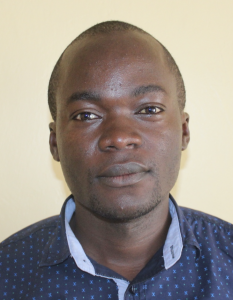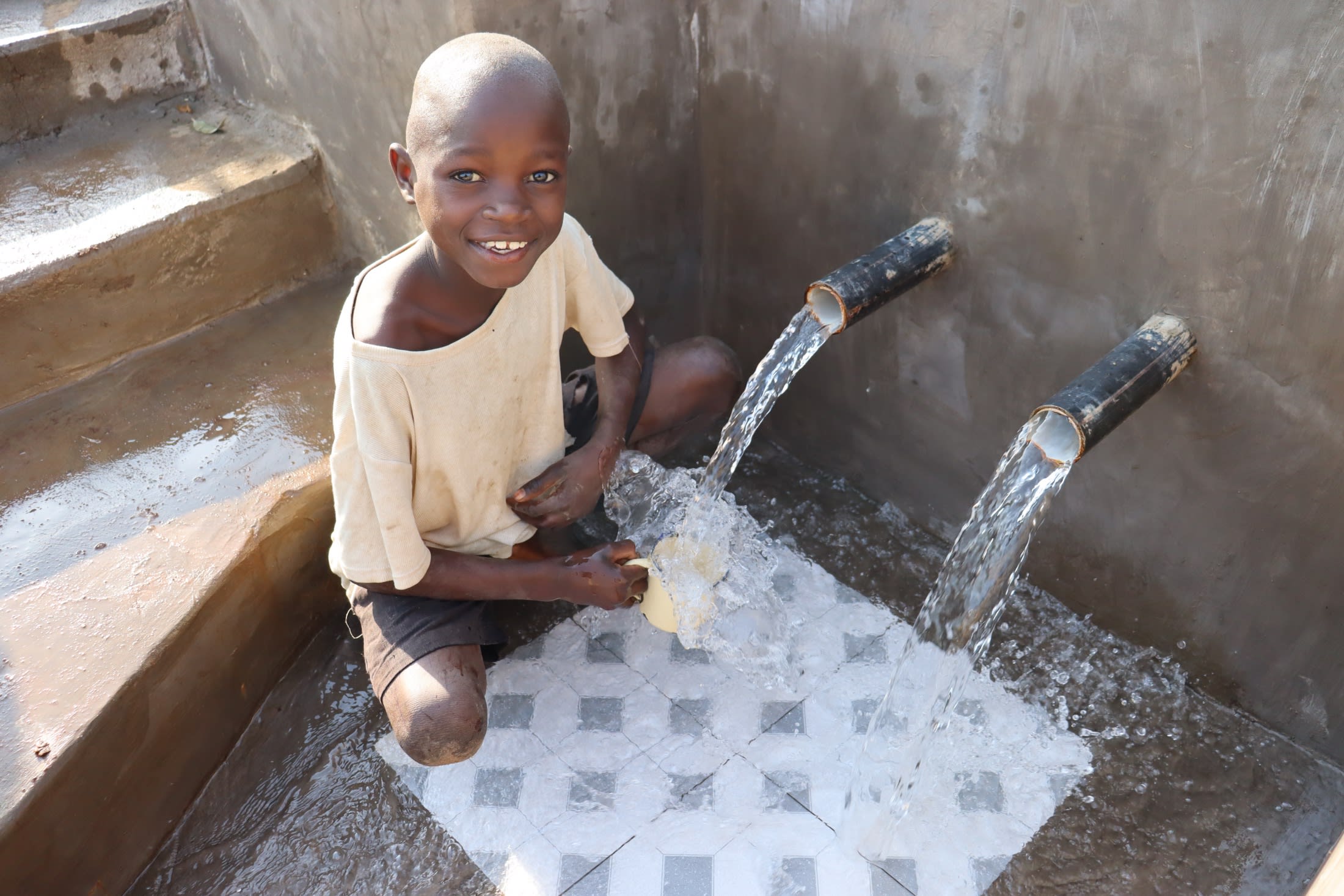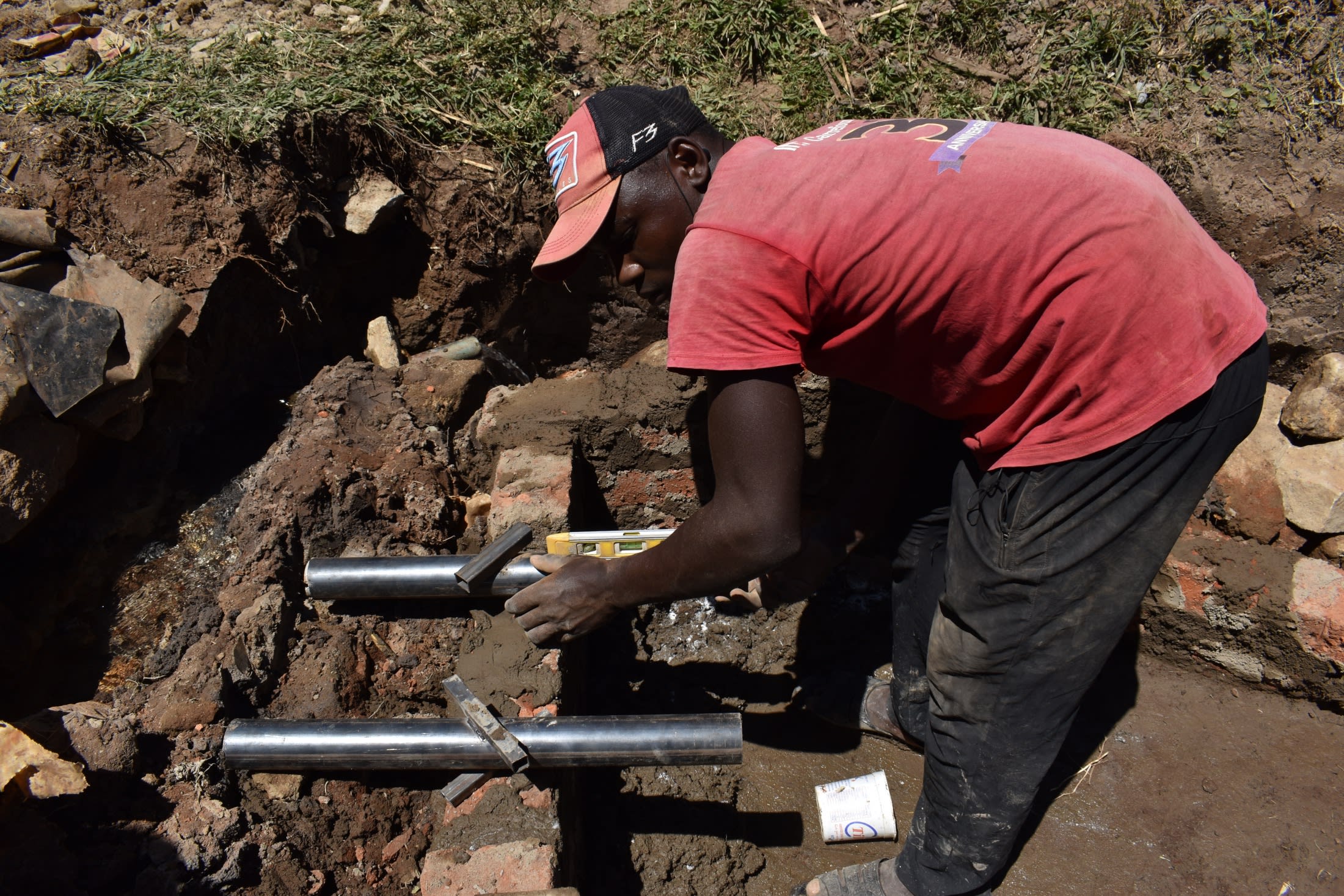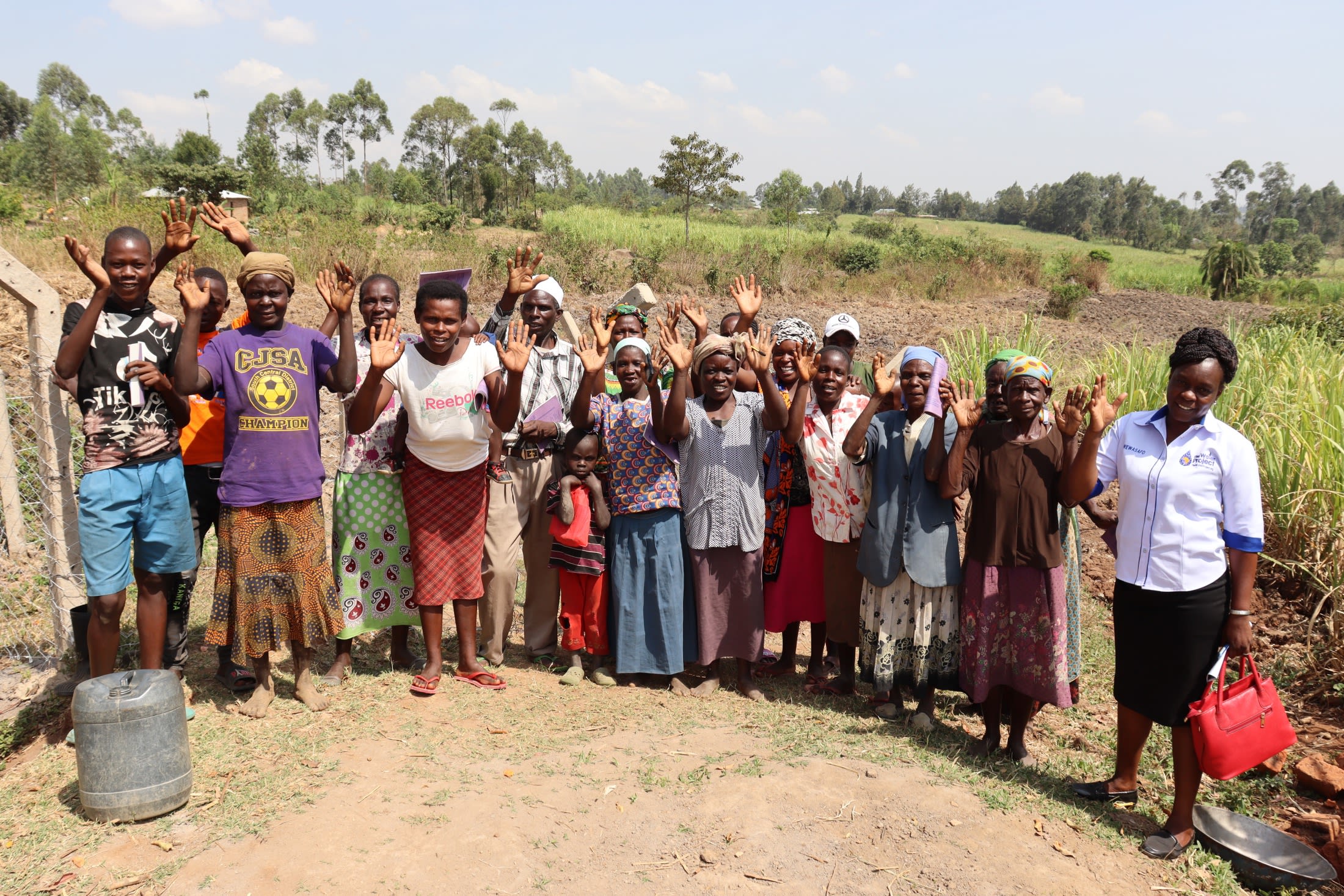There is abundant water flow from Jackton Muhoka Spring in Lukala, but the water is unsafe, cloudy, and brown. Regardless, the 336 people who rely on it for their daily needs have no choice but to use it.
"Being a father and an elder, I have experienced many challenges concerning access to clean water. [I] am forced to wake up early in the morning to fetch water to avoid the crowds of people coming from different areas," said farmer Joshua Makokha, shown below carrying water.

An attempt at protecting the spring was made, but it was done improperly, and since then, it has deteriorated.
The water is coming out from under the headwall weakening the structure and causing the collection pipes to erode and the water to taste and smell terrible. The catchment area is overflowing with algae-filled, stagnant water since there is no drainage channel, and it is stepped in all day long.

The water source is located in a flat area, so during the rainy season especially, dirty runoff water and waste products wash directly into the spring. The drawing point can not easily accommodate more than one person at a time, although there are two collection pipes and the spring's cement floor, walls, and steps are crumbling. And the spring box is overgrown without a fence to keep animals out.

"The current water situation has really affected me in several ways ie queuing for a long time in the evening when [I] am supposed to do my homework. Last week when we had much rain, I got sick with my stomach having a problem [with] diarrhea. This was due to [the] contamination of water. I was forced to seek medication hence being absent from school," said 13-year-old Biriory M., shown standing in the spring overflow above.
Drinking the contaminated water is costing community members the resources of time, health, and finances they can not afford to pay.
"Last school term, my son got sick for almost three weeks. He was unable to attend school due to seeking medication, and economically, I was affected," said Joshua.
By protecting the spring properly, hopefully, the people living in Lukala will be able to regain their time, health, and finances so they can make strides to improve their daily lives.
What We Can Do:
Spring Protection
Protecting the spring will help provide access to cleaner and safer water and reduce the time people have to spend to fetch it. Construction will keep surface runoff and other contaminants out of the water. With the community's high involvement in the process, there should be a good sense of responsibility and ownership for the new clean water source.
Fetching water is a task predominantly carried out by women and young girls. Protecting the spring and offering training and support will, therefore, help empower the female members of the community by freeing up more of their time and energy to engage and invest in income-generating activities and their education.
Training on Health, Hygiene and More
To hold training, we work closely with both community leaders and the local government to approve small groups to attend training. We ask community leaders to invite a select yet representative group of people to attend training who will then act as ambassadors to the rest of the community to share what they learn.
The training will focus on improved hygiene, health, and sanitation habits in this community. With the community's input, we will identify key leverage points where they can alter their practices at the personal, household, and community levels to affect change. This training will help to ensure participants have the knowledge they need about healthy practices and their importance to make the most of their water point as soon as water is flowing.
Our team of facilitators will use a variety of methods to train community members. Some of these methods include participatory hygiene and sanitation transformation, asset-based community development, group discussions, handouts, and demonstrations at the spring.
One of the most important issues we plan to cover is the handling, storage, and treatment of water. Having a clean water source will be extremely helpful, but it is useless if water gets contaminated by the time it is consumed. We and the community strongly believe that all of these components will work together to improve living standards here, which will help to unlock the potential for these community members to live better, healthier lives.
We will then conduct a small series of follow-up trainings before transitioning to our regularly scheduled support visits throughout the year.
Training will result in the formation of a water user committee, elected by their peers, that will oversee the operations and maintenance of the spring. The committee will enforce proper behavior around the spring and delegate tasks that will help preserve the site, such as building a fence and digging proper drainage channels. The fence will keep out destructive animals and unwanted waste, and the drainage will keep the area's mosquito population at a minimum.

 Protected Spring
Protected Spring
 Rehabilitation Project
Rehabilitation Project






































